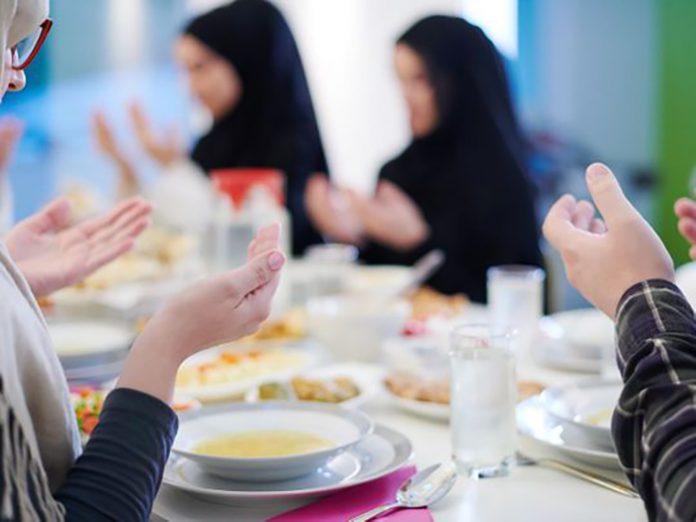Fasting during the holy month of Ramadan is considered as one of the five pillars in Islam and every year during this month an estimated 50 million people with diabetes practice daily fasting. Most people with type 2 diabetes can fast safely with appropriate medical advice and management before and during fasting. However, people with type 1 diabetes need special attention.
Below are a few vital facts and tips to ensure that you observe the holy month in full measure, without affecting your health.
Impact of fasting: Fasting begins to affect the body typically eight hours after your last meal. Your body starts to use stored up energy through glucose and fat. If you are on insulin medication for diabetes, then even more glucose is utilized than normal, putting you at risk of hypoglycemia (low blood sugar level).You may also experience hyperglycemia (high blood sugar level) when your body resorts to producing glucose from the liver itself. Liver is the storehouse of glucose in the form of Glycogen.
Plan ahead of fasting: If you are a diabetic then plan ahead at least six weeks before the holy month starts to get your medications and injectables adjusted with your meal timings. Your doctor will revise your insulin dosage and times based on your fasting schedule.
All diabetic people who take insulin must have their food at least half an hour after the Injection. Iftar is the best time when you have your major portion of the meal and most physicians advise patients to take insulin just before the Iftar. One major factor you must make sure is not to go for prayer and delay your main Iftar mealafter taking your insulin shot. This can cause drop in sugar levels and cause alarming symptoms.
Planning Ramadan meals: While Suhur and Iftar are the primary meals during Ramadan, it is best to have at least three meals in a day, rather than two heavy meals. Always make it a point to have your Suhur meal as late as possible and not earlier. This will help prevent hypoglycemia and give you energy to sustain you throughout your day. No doubt in diabetes, reducing carbohydrates gets the most attention. But other kind of foods are also equally important and need to be understood well, during.
Ramadan as well as at other times. Knowing what food gives you carbohydrates and converts to sugar is the most important tool in managing diabetes. This helps you balance your diet and plan your meals wisely using. While planning meals remember to include food from all six food groups
Grains: Brown rice with bran or wheat is the most preferred. Choose whole grains over refined grains as they contain fiber that helps regulate sugar levels at a slow pace. Foods like millets, quinoa are also healthy alternatives.
Fruits: It is recommended to have 2-3 servings of whole fruit (rather than juice) spread throughout the day, Limit the number of dates to 3 or 4 maximum.
Vegetables: Avoid pumpkin and sweet potatoes. Most vegetables do not convert to sugar except starchy ones like potatoes, beetroot, peas and corn. Eat these in moderation and as an alternative to other starchy food.
Fats: Some fat in our diet is essential but most of us eat too much. Plant-based oils like vegetable rapeseed and olive oil are rich in unsaturated fat, so they can help lower cholesterol and reduce the risk of heart disease. Lower fat unsaturated spreads are a good alternative to butter.
Dairy: Milk and its products contain lactose. The body breaks lactose down into glucose and galactose (most of which is later converted to glucose). All dairy except cheese can break down into sugar in your body. So It is best to keep a limit on dairy products.
Protein: Protein does not become sugar but starchy sources of protein such as legumes, lentils and beans do. Therefore, if you wish to have hummus with bread, you will need to reduce your portions to half of each. Fish is a great source of protein, vitamins and minerals. Aim to eat at least two portions of fish every week.
Try to reduce the following: Fatty and salty foods; Juices and canned carbonated drinks; Coffee and tea, as they are diuretic and can cause dehydration; Iftar sweets can have a major impact on your blood glucose level between Iftar and Suhur.
Also remember to drink plenty of water if you are not put into restricting fluids by your doctor due to chronic diseases. Aim for at least 2-3 liters of water per day.
Carry some dates, sugar, juice or anything that can raise your glucose level in case you experience hypoglycemia and need to break your fast.
- Keep testing your blood glucose regularly; it will not break your fast.
- Always carry a bottle of water with you, in case you feel dehydrated.
- Do not stop your insulin, but do alter your dose and times as advised by your doctor.
- Exercise is another good way to keep your glucose levels in check.
- During Ramadan, it is best to do light or moderate exercise for at least half an hour but only between Iftar and Suhur times. Do not exercise during fasting hours.
- Make sure you take plenty of water before and after exercise.
Dr. Jibin John Thomas MD
Registrar – Internal Medicine
International Clinic



















